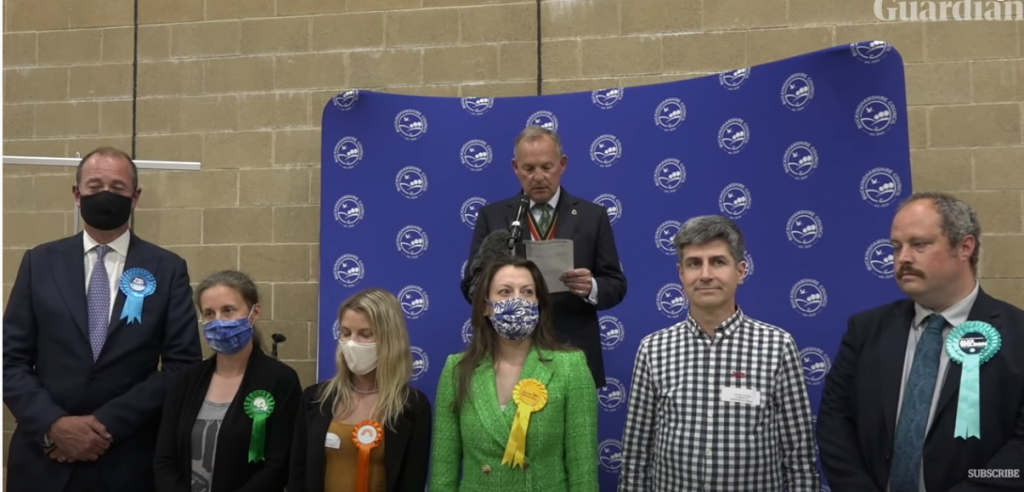Chesham Tory Peter Fleet was on a losing run right from his selection as candidate

The LDs almost never fail when they start in 2nd place behind the Tory
In the aftermath of the Chesham by-election Peter Fleet has issued a series of Tweets expressing his bitterness about the outcome and Lib Dem tactics. Fair enough – I tried to run for parliament once and I know how failure affected me.
Fleet would have been less disappointed if he had checked his electoral history before putting himself forward for the by-election. If he had done so he would have found that in contests where the LDs were in second place to the Tories at the previous general election the party has an extraordinary record of success. The only exception to this I can find in recent times is Henley in 2008.
The reason is clear. The party faces an uphill battle to get any attention whatsoever and the electoral system works very much against it. At GE2019 it secured just 1.7% of the Commons seats with just under 12% of the national vote. At that election it increased its vote share by nearly 4% but came out with fewer seats.
The one area it can come to the fore is in Westminster by-elections where it starts in second place against the Tories. These are critical to its future and it has developed powerful campaigning techniques supported by hundreds of activists who are ready to travel hundreds of miles to pound the streets and stuff envelopes.
Initially this is about establishing the party as the challenger by swamping the area with a mass of leaflets and posters. Then it runs excellent GOTV (Get out the Vote) operation both just after postal packs have gone out and then on election day itself.
As a punter I was never in real doubt that I would lose my LD bets.
Mike Smithson
UPDATE: These are the markeThis market relates to whether the UK government re-introduces any legally enforceable restrictions on social contact in England related to the spread of coronavirus, following the legal end of restrictions on social contact (currently expected to take place on 19 July 2021). Examples may include, but are not limited to, the mandatory wearing of face masks on public transport or the closure of pubs/nightclubs. For the purposes of this market, restrictions will not include any regulations on international travel or any regulations related to self-isolation or quarantine. For the purposes of this market, ‘re-introduce’ does not require any restrictions to exactly replicate previous restrictions. If the UK government does not end restrictions on social contact in 2021, and thus could not ‘re-introduce’ restrictions, this market will be void. Dates in this market relate to when any restrictions come into force in England, rather than the date on which they are announced. All times and dates in this market are in UK time. Clarification (14 July 2021): This market refers to mandatory England-wide measures introduced by the UK government. Any measures that are introduced locally or by individual companies (e.g. Transport for London only) will not count towards the settlement of this market. Clarification (6 September 2021): If ‘vaccination passports’ are required for entry to nightclubs or other events, this market will be settled for yes, so long as the measure satisfies the other conditions in the market rules, i.e. that it is mandatory, implemented by the UK government, England-wide and legally enforceable. Clarification (12 October 2021): If vaccines become mandatory for people working in care homes at any point in 2021 (https://www.gov.uk/government/publications/vaccination-of-people-working-or-deployed-in-care-homes-operational-guidance/coronavirus-covid-19-vaccination-of-people-working-or-deployed-in-care-homes-operational-guidance) this market will be settled for yes, so long as the measure satisfies the other conditions in the market rules, i.e. that it is mandatory, implemented by the UK government, England-wide and legally enforceable.